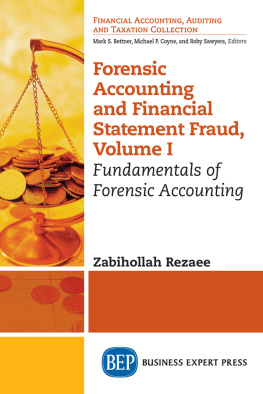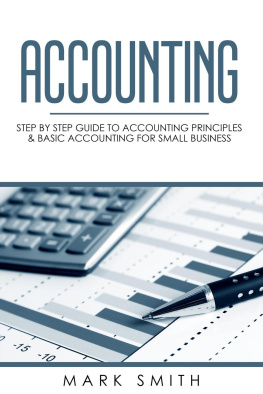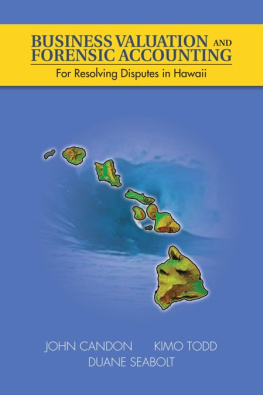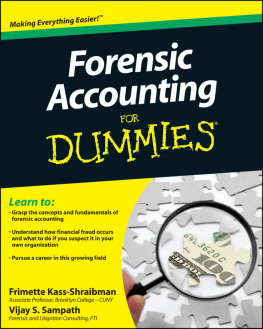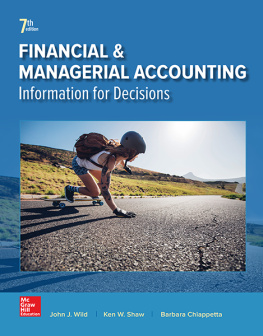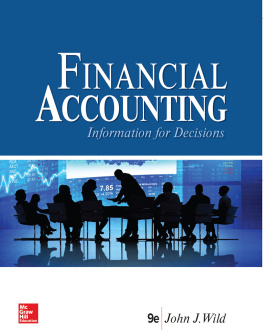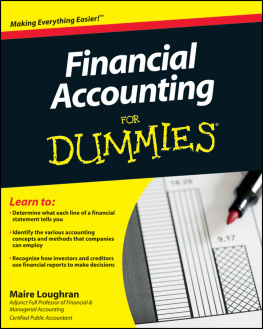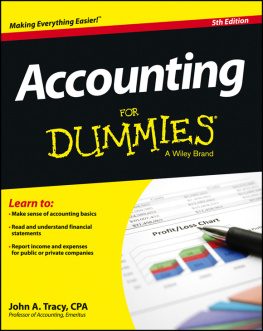Forensic Accounting
and Financial Statement
Fraud, Volume I
Forensic Accounting
and Financial Statement
Fraud, Volume I
Fundamentals of Forensic Accounting
Zabihollah Rezaee

Forensic Accounting and Financial Statement Fraud, Volume I: Fundamentals of Forensic Accounting
Copyright Business Expert Press, LLC, 2019.
All rights reserved. No part of this publication may be reproduced, stored in a retrieval system, or transmitted in any form or by any meanselectronic, mechanical, photocopy, recording, or any other except for brief quotations, not to exceed 250 words, without the prior permission of the publisher.
First published in 2019 by
Business Expert Press, LLC
222 East 46th Street, New York, NY 10017
www.businessexpertpress.com
ISBN-13: 978-1-63157-148-0 (paperback)
ISBN-13: 978-1-63157-149-7 (e-book)
Business Expert Press Financial Accounting, Auditing and Taxation Collection
Collection ISSN: 2151-2795 (print)
Collection ISSN: 2151-2817 (electronic)
Cover and interior design by S4Carlisle Publishing Services Private Ltd., Chennai, India
First edition: 2019
10 9 8 7 6 5 4 3 2 1
Printed in the United States of America.
Abstract
The existence and the persistence of high-profile alleged financial statement fraud (e.g., Enron, WorldCom, Parmalat, Satyam), as well as the investment Ponzi schemes and credit crunch scandals, have negatively affected the safety and soundness of financial markets and investors confidence in public financial information. Forensic accounting has advanced as an important and rewarding field of accounting to prevent, detect, and correct these financial scandals and other types of fraud. In such an increasingly unstable economic and litigious environment, there has been significant growth in the demand for and interest in forensic accounting and investigative services. Forensic accountants provide litigation consulting, expert witnessing, valuation, and fraud investigation services.
The organization of this book provides maximum coverage and flexibility in choosing the amount and order of materials on forensic accounting and financial statement fraud (FSF) theory, education, and practice. This book is organized into two volumes; each volume can be utilized separately or in an integrated form. The first volume, entitled Fundamentals of Forensic Accounting, consists of five chapters and addresses the relevance and importance of forensic accounting and fraud examination as well as the framework and structure of forensic accounting practices. The first chapter presents an introduction to forensic accounting and financial statement fraud examination and their relevance and importance to businesses, financial markets, economies, and society. describes forensic accounting best practices, education, and research.
Keywords
forensic accounting; financial statement fraud; fraud examination; expert witnessing; litigation consulting; skill sets of forensic accountants; professional standards; codes of professional conduct; fraud and non-fraud forensic accounting services; forensic accounting research; forensic accounting education
Contents
Financial statement fraud (hereafter, FSF) is a severe threat to investor confidence in financial information and thus capital markets. Reported financial scandals by high-profile companies (Enron, Global Crossing, Qwest, WorldCom, Parmalat) and ethical debacles in corporations have eroded investor confidence and public trust in corporate America, its corporate governance, financial reporting, and audit functions. These scandals and related FSF reinvigorated interest in education and practice of forensic accounting and financial statement fraud examination. Forensic accounting is gaining considerable attention because the American Accounting Association (AAA) has added a new educational and research section on "Forensic Accounting." The Securities and Exchange Commission (SEC) has strengthened its FSF divisions and trained its staff in the area of forensic accounting and financial statement fraud, all international public accounting firms have established a forensic accounting department, and forensic accounting and fraud examination is becoming one of the fundamental components of business school's curriculum in recent years.
This book presents a comprehensive framework of the theory and practice of forensic accounting investigation and FSF examination in two volumes. The purpose of this book is to present a comprehensive primer of forensic accounting in areas of fraud and nonfraud services. At present, headlines have again been dominated by the investment Ponzi schemes and credit crunch scandals. Banks have been hit by record levels of fraud over the past several years, and the situation is likely to get worse as the full impact of the credit crunch unfolds. In such increasingly unstable economic and litigious environment, there has been significant growth in the demand for and interest in forensic accounting services. During the 20072009 global financial crisis, the focus on financial statement fraud prevention and detection become more important as regulators, investors, and companies seek better understanding of corporate malfeasance and misconduct.
In this book, forensic accounting is defined as the practice of rigorous data collection and analysis in the areas of litigation support consulting, expert witnessing, and fraud examination. Furthermore, forensic and investigative accounting services range from expert report preparation to appearing in the witness box, and from carrying out a fraud investigation to interviewing witness and securing evidence. As a rapidly growing area within the accounting profession, forensic and investigative accounting has gradually been recognized by professionals and academics. Forensic accounting is viewed as one of the most secured career tracks. There appears to be a gap between forensic and investigative accounting practice and education given that there is only a limited number of forensic accounting modules/courses offered within accounting and business curricula in universities worldwide. This book is intended to develop an awareness and understanding of the main themes, perspectives, frameworks, and issues pertaining to forensic and investigative accounting. This book provides practitioners, academics, and students with the knowledge and the professional and personal skills in technical, analytical, and communication areas to equip them to become successful forensic accountants with adequate knowledge in FSF examination.
The two volumes of this book present the essential and fundamental aspects, structure, theory, and practice of forensic and FSF, with a keen focus on a holistic approach in forensic accounting and fraud investigation. These two volumes should assist forensic accountants and fraud examiners with adequate knowledge and tools in effectively performing fraud and nonfraud forensic accounting services. Anyone who participates in the preparation of financial reports or uses financial information in making financial decisions should be interested in this book. Specifically, corporations and their executives, the boards of directors and audit committees, internal and external auditors, accountants, governing bodies, users of financial statements (investors, creditors, pensioners), business schools, other professionals (attorneys, financial analysts, bankers), forensic accountants, and fraud examiners will benefit from this book.

